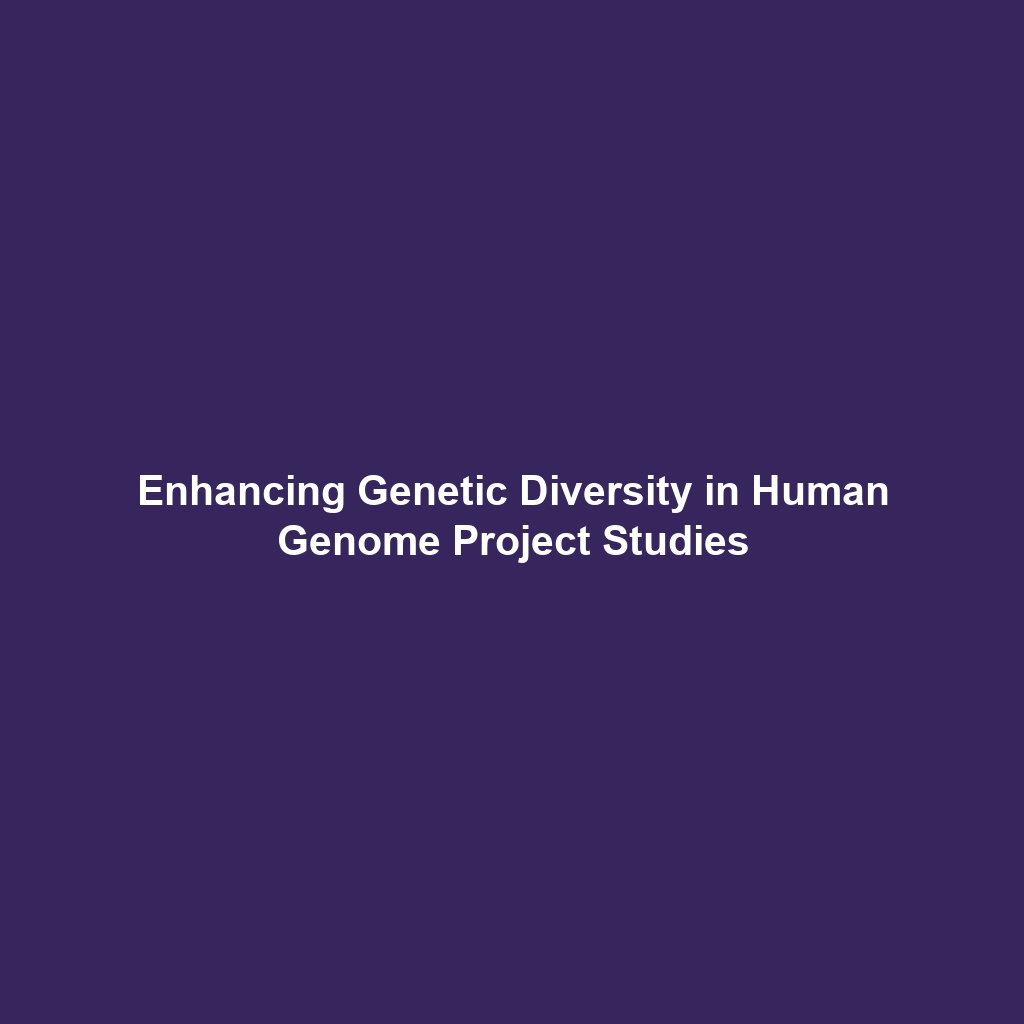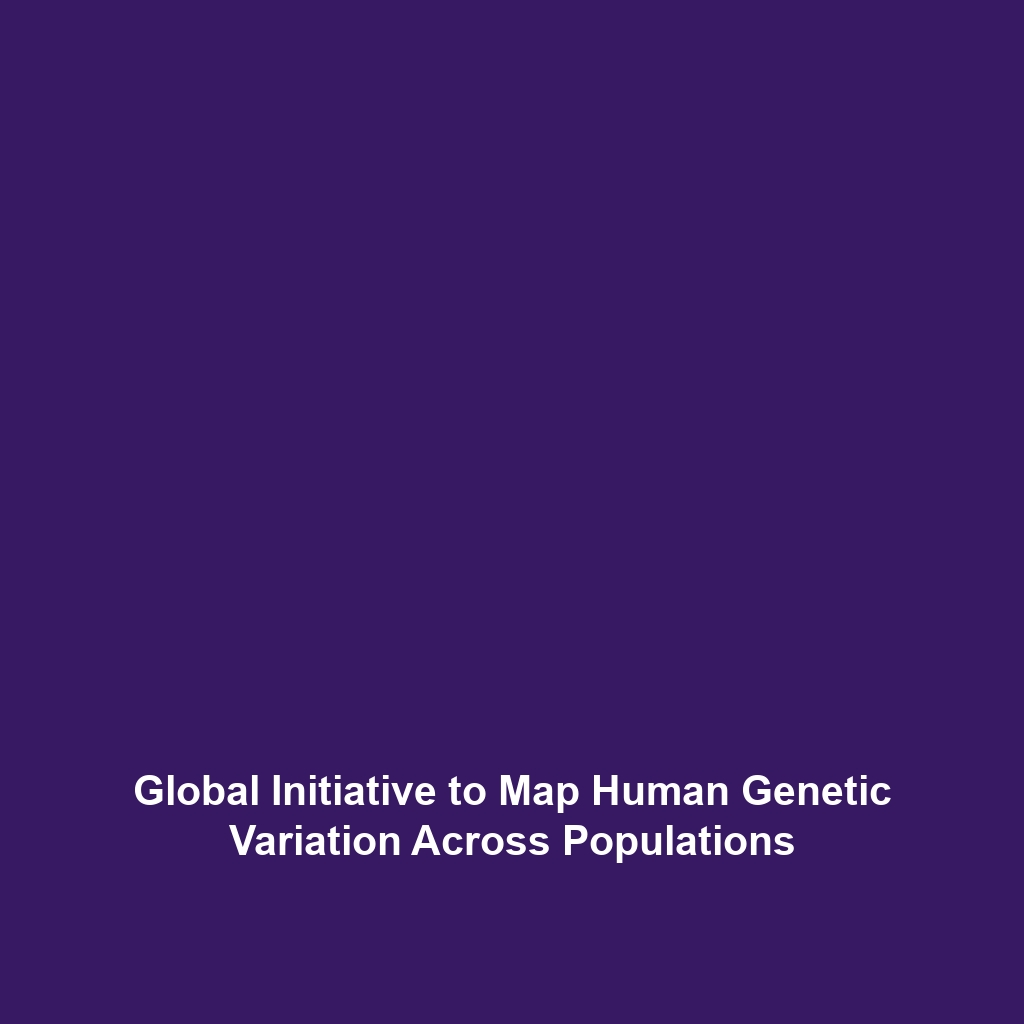Expanding the Genetic Diversity of Genomic Studies
Introduction: The expansion of genetic diversity in genomic studies is paramount for enhancing our understanding of human biology and disease. As a central component of the Human Genome Project, which aimed to map the human genome, this initiative recognizes the critical need for inclusive representation in genetic research. By incorporating a diverse array of populations, researchers can uncover variations that influence health outcomes, thereby improving personalized medicine and therapeutic interventions. In this article, we explore the significance of expanding genetic diversity, key concepts, applications, challenges, and future directions.
Key Concepts
Expanding the genetic diversity of genomic studies involves several key concepts, including:
- Diversity of Populations: Incorporating data from underrepresented groups to reflect the genetic variability present in the global population.
- Genetic Variation: Understanding how different alleles impact disease susceptibility and treatment response across diverse populations.
- Bioinformatics: Utilizing advanced computational tools to analyze genomic data and identify relevant genetic variations.
These principles are integral to the Human Genome Project, which emphasizes mapping genes across varied ethnic backgrounds to enhance our comprehension of genetics.
Applications and Real-World Uses
Expanding genetic diversity in genomic studies has significant real-world applications, particularly in the context of the Human Genome Project:
- Personalized Medicine: Tailoring medical treatments based on genetic variations identified in diverse populations.
- Pharmacogenomics: Understanding how genetics influence drug metabolism and efficacy for various ethnic groups, improving drug safety and effectiveness.
- Public Health Initiatives: Developing population-specific health interventions that consider genetic risk factors identified in diverse groups.
These applications illustrate how expanding genetic diversity informs and enriches genomic studies, leading to advancements in health and medicine.
Current Challenges
Despite its significance, there are several challenges associated with expanding genetic diversity in genomic studies:
- Data Scarcity: Limited availability of genomic data from underrepresented populations hampers comprehensive analysis.
- Ethical Considerations: Ensuring informed consent and equitable access to research benefits for diverse populations.
- Funding Disparities: Inconsistent financial support for studies focusing on minority populations compared to majority populations.
Addressing these challenges is essential for realizing the full potential of genomic studies in enhancing global health outcomes.
Future Research and Innovations
Research on expanding genetic diversity is evolving, with several upcoming innovations poised to advance the field:
- Next-Generation Sequencing (NGS): Enhanced sequencing technologies that allow for rapid and cost-effective analysis of diverse genomes.
- Artificial Intelligence in Genomics: Utilizing AI algorithms to analyze vast datasets and identify significant genetic variations among diverse populations.
- Community Engagement: Involving local communities in research to improve representation and ethical standards.
These innovations promise to reshape the landscape of genomic studies, fostering a deeper understanding of genetic diversity.
Conclusion
Expanding the genetic diversity of genomic studies is crucial for ensuring equitable healthcare and accurate scientific insights in the context of the Human Genome Project. By addressing existing challenges and pursuing innovative research approaches, we can pave the way for significant advancements in personalized medicine, public health, and our overall understanding of human genetics. For further reading on genetic diversity and its impacts, consider exploring related topics on our website.

